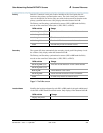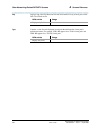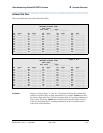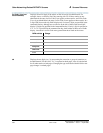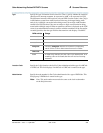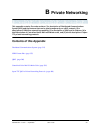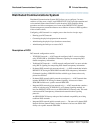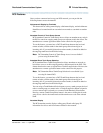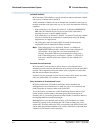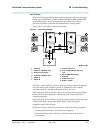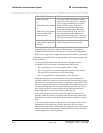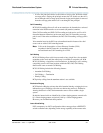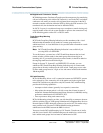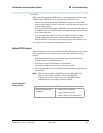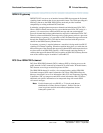
Distributed Communications System
313
Administration for Network Connectivity
555-233-504 — Issue 1 — April 2000 CID: 77730
B Private Networking
DCS Features
Once you have connected and set up your DCS network, you can provide the
following features across the network:
Alphanumeric Display for Terminals
This feature allows calling-name display, called-name display, and miscellaneous
identifiers to be transferred from a terminal on one node to a terminal on another
node.
Attendant Control of Trunk Group Access
DCS Attendant Control of Trunk Group Access allows an attendant at any node in
the DCS to control an outgoing trunk group at an adjacent node in the cluster. The
attendant uses a remote-tgs feature button on the console for this purpose.
To use this feature, you must have a DCS Trunk Group between the local and
remote switches, and the trunks in that trunk group cannot insert digits on
incoming calls. If you need digit insertion on these trunks, it should be added on
the outgoing trunk based on the dialed string.
Note: DCS Attendant Control of Trunk Group Access is not available if
you are using D-channel DCS.
Attendant Direct Trunk Group Selection
DCS Attendant Direct Trunk Group Selection allows attendants at one node to
have direct access to an idle outgoing trunk at a different node in the DCS. This
feature functions the same as regular Direct Trunk Group Selection. However, the
attendant uses a remote-tgs feature button on the console for this purpose.
Note: DCS Attendant Direct Trunk Group Selection is not available if you
are using D-channel DCS.
To use this feature, you must have a DCS Trunk Group between the local and
remote switches, and the trunks in that trunk group cannot insert digits on
incoming calls. If you need digit insertion on these trunks, it should be added on
the outgoing trunk based on the dialed digits.
You can assign a Trunk Hundreds Select button to access a trunk group at the local
node or a trunk group at a remote node. A Trunk Group Select button assigned to
access a remote node is referred to as a remote Trunk Hundreds Select button.
Pressing a remote Trunk Group Select button is the same as dialing the tie trunk
group access code for the remote node and the trunk access code of the selected
trunk.
Attendant Display
The DCS attendant console displays calling-party ID and called-party ID
information for calls to and from remote switches in the network.



